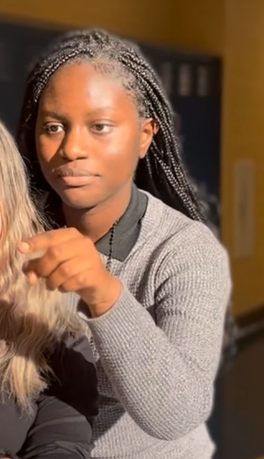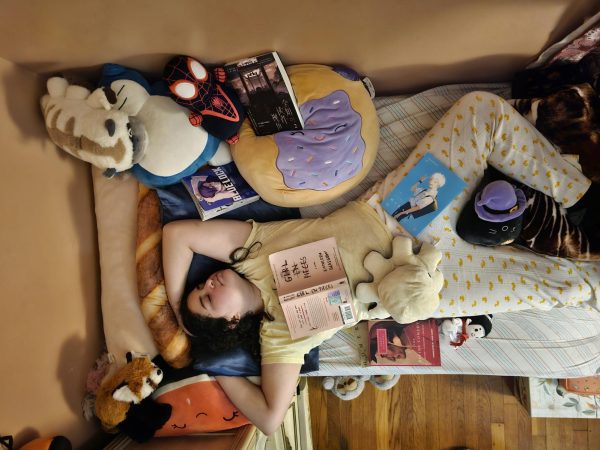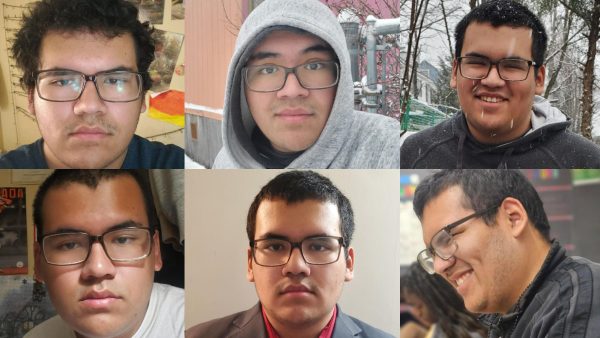Well it’s Culture
What culture is for me and how I’m learning
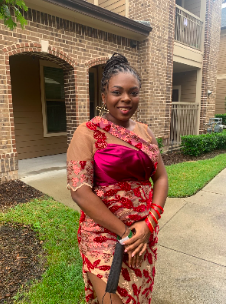
I, a Nigerian American, often grapple with the concept of culture. Culture, in simple terms, could be defined as the way of life for an entire society. To me, it means the way I was raised, who I am now, and what my interests are. So how is my definition different from the real meaning?
Being raised in an African household and living in the US was unruly. My mom teaches me things about life and society tells me something else.
My mom: You need to lose weight, people don’t like fat black girls, stop eating.
Society: You are beautiful and loved just the way you are. Keep being naturally you.
Or especially this…
My mom: Getting an education is the only way you could ever succeed. THAT’S IT!
Society: An education for who? Such a thing is not always the case for everyone, so do what is best for you!
I was never sure who to listen to because it was in our Nigerian CULTURE to listen to our parents but to SOCIETY and its culture, an obligation to be free and happy no matter what others have to say even if it was your own parents.
I struggled and habitually thought about who I would be:
The obedient Nigerian daughter
Or
The free American child from America?
My mom and the American culture/way of life didn’t help making a decision any easier.
My mother always wanted things to move smoothly. Due to this there were thousands of rules in place such as no going out, no boys, no misbehaving. At every turn, there was a new obstacle yet American culture didn’t come with such. American culture, in my opinion, teaches you to explore, go out and probably even scream when you enter a room.
So once again I had to think would it be:
Breathing quiet down the hallway,
Or
Scream into every room I walked in?
I do remember what I believe to be the first memory of this drastic change which is when I started high school. I remember being surprised that there were other people like me who had a hard time deciding who they were. It came to the traditions that we were raised by and then the ones we saw from the outside. I realized that there are ways we can incorporate both those cultures into our own.
The one I took into consideration the most is the idea of education. I knew that going to school was not the only option but that it was what I could do for now. I could look and explore new ways to be successful because getting a degree was not the only way.
I accepted myself and my culture for the way I was with no faults. I could not be more proud of the Nigerian American I have, in a sense, chosen to be. I was content with my concept of culture.
Then just a few years later, I was once again grappling with what culture genuinely meant.
Recently, two cultures that I am very connected to have received much recognition for their unique sense of presence in the world: Nigerian culture and Asian/Korean culture.
We went from “African Booty Scratchers” and “Jungle Monkeys” to being the sought-after and respected communities around the world. The turnaround was the definition of a 360. I love being Nigerian and I have always respected Korean culture now more so than ever before, with the rise of K-Pop music. Even though it changes and newfound appreciation is amazing ,it brings up a new question that I am still yet to answer. What is the difference between cultural appropriation and appreciation?
Culture appropriation, defined in the broadest terms as the “adoption of cultural elements by people not in that culture,” has come into the forefront of Western consciousness in recent years. Many argue that cultural appropriation constitutes a “theft” of culture from historically marginalized societies, especially when these elements are used outside of their original cultural context.
I have personally witnessed instances where a non-African cooked what she thought was a Nigerian dish the wrong way. She cooked the meal with the intention of celebrating the culture her daughter was marrying into. Though she tried and still somewhat failed, she still tried, which I thought was beautiful and sweet but for reasons unknown others thought was disrespectful.
“She did not use the right herbs,” some of the aunties said.
I’m thinking, “Okay well obviously, she did not have access to it so what’s the problem?”
Or when I started Korean pop, I tried learning the language and I thought I was speaking it perfectly. When I had a conversation with one of my Korean-American friends and tried to speak a bit of Korean with my little ¨annyeonghaseyo¨(hello), she looked at me with pure concern and said, “You said it wrong but the effort was nice.” She was happy that I tried and stated that she respected the fact that I was serious while others say it as a joke to mess with her.
To me, this represents how stretched the parameters of cultural appropriation have become. Can it still be cultural appropriation even if it was done with respectful intentions? What about if the native culture is fine with an act of cultural appropriation, but its diaspora is not? Where, then, do we draw the line?
Do I have an answer? No. Of course, the answer lies within precisely how the culture is presented and approached.
What I know right now is I’m in a place where I want to learn more about culture and what it means to other people. I’ve found for myself that instead of being this, that or the fifth, I can adapt and be the person both my Nigerian and American culture taught me to be.
I have submitted myself to the idea that I am acquiring new knowledge on many cultures and should never feel guilty about my discovery approach. In the end, I am proud of the state of mind that I am in.
Your donation will support the student journalists of Parkdale High School. Your contribution will allow us to cover our annual website hosting costs and publish some printed editions, as well.
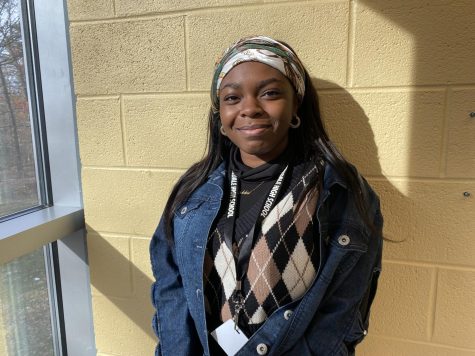
Debbie Pace is a current senior at Parkdale High. This is her first full year on the Newspaper staff as a Social Media Reporter and I can tell you, she...

